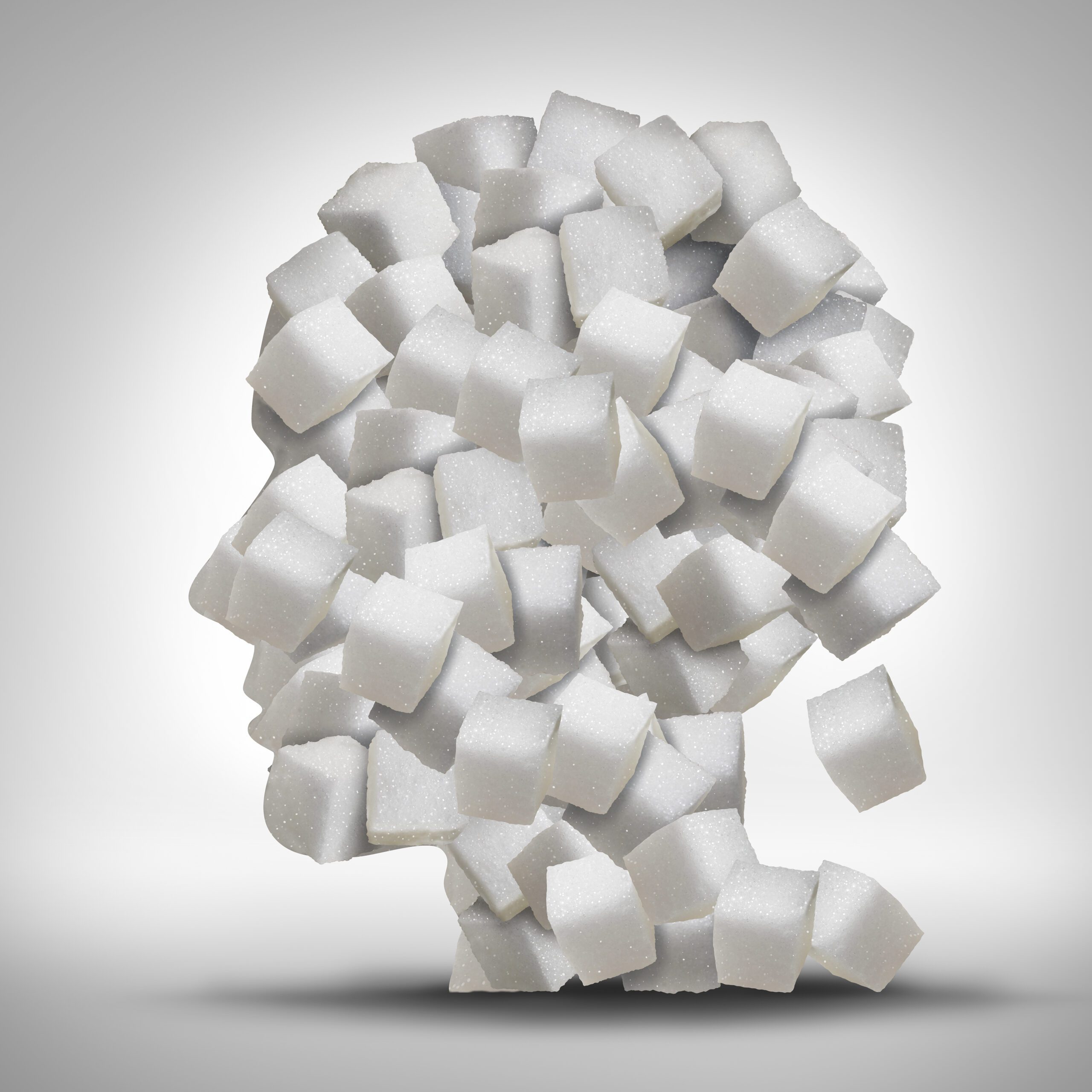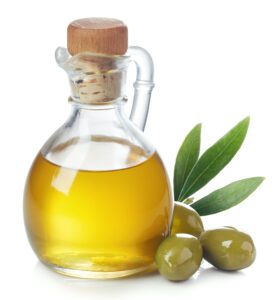The Ultimate Guide to Kick Sugar Addiction
August 31, 2018
 496
496 
Likening a sugar addiction to a drug habit might seem like an overreaction on the surface, but it might not be exaggerated. Surely, at some point in time, you might have found yourself really craving a chocolate bar, a slice of cake or a can of a soda pop, even when you’re not hungry. This is what’s referred to as a sugar craving and almost all of us have experienced this before. But have you ever stopped to think that these cravings might be symptomatic of a sugar addiction?
If you habitually consume products, whether it’s food or beverages, with large quantities of added sugar from day to day at consistent times, you might experience an underlying sensation to continue doing so. Why is that? When we eat sugar, it releases opioids and dopamine in the body; therefore, our brain’s receptors respond to the substance not unlike the way the do to habit forming, recreational drugs. Our brain associates the intake of sugar as a reward, and it wants to keep receiving that reward, subsequently creating an addiction to foods with higher concentrations of sugar. It changes the chemistry of our brains, altering neuropathways, resulting in the aforementioned cravings, overindulging, and withdrawal symptoms ranging from irritability, fatigue and headaches. You can also become overly sensitive to sugar due to cross-sensitization, amplifying the body’s response to the stimulus. It can be used as a gateway to other destructive behaviors and addictions.
Many researches, internationally mind you, agree that comparing the addictive properties of sugar to illicit drugs is not much of a hyperbole. Regardless of the fundamental difficulty of distinguishing a subject’s different types of rewards from their psychological experiences, scientific research supports that the rewards reaped from sugar can actually replace those we get from drugs. That doesn’t mean that the response our body gets from sugar is as severe or as potent as that of an addictive stimulant, like cocaine, but, rather, our bodies find the rewards we get from the former more desirable. Meaning, the buzz we receive from sugar stands to be more attractive than the high we get from cocaine.
How do We Know This?
About ten years ago, a comprehensive study was conducted by Professor Bart Hoebel, along with his team in the Department of Psychology, at the Princeton Neuroscience Institute using lab rats to study the effects it has on the brain. Prior to the experiment, the rats received consistent dosages of sugar until they had become dependent on the substance, and then would be denied it for long periods of time. When they were reintroduced to sugar, they ate it in higher volumes than from before, showing a drastic spike in sugar addiction.
What Were the Results?
Now that we’re a little more aware of how addictive sugar can be, lets take into consideration what’s the #1 cause of death in the US. If you guessed heart disease, then you are indeed correct, with more than 5 million people dying annually from it. That means that one in every four deaths is the result of heart disease. Compare that to the 72,000 that died from a drug overdose last year, 2017. How does sugar addiction tie into this? Well, just in case you forgot….
Sugar is Devastatingly Harmful to your Health!
Again, it’s as addictive as, if not more than, drugs like cocaine and heroin. Sugar addiction can also affect your mental well-being just as much as your physical well-being; it has been linked to certain cancers; and the list goes on… and on… and on.
According to a study conducted by researchers over five years ago at The University of Texas Health Science Center at Houston, the molecule of sugar has a particularly grim effect on heart health. Their findings, which was published in the May 21 issue of the Journal of the American Heart Association, states that sugar not only puts stress on your heart, but it can also lead to heart failure.
Sugar’s Effect on Your Heart
According to their research, the molecule, glucose 6-phosphate (G6P), “causes stress to the heart that changes the muscle proteins and induces poor pump function leading to heart failure.” G6P can accumulate in your body when you consume too much sugar and/or starch.
Lead researcher, Heinrich Taegtmeyer, a doctor and professor at the University, added “When the heart muscle is already stressed from high blood pressure or other diseases, and then takes in too much glucose, it adds insult to injury.”
With our processed-foods, it’s no wonder the statistics on heart disease are so incredibly staggering… with 5 million Americans dying from heart failure and 550,000 new patients diagnosed with heart failure each year in the U.S.
What’s worse? With the numbers rising every year, Taegtmeyer claims there have been little-to-no significant medical advances in the treatment of heart disease. So that, of course, leaves prevention. Unfortunately, with instances of obesity through the roof, especially in the younger generation – methods of prevention are anything but in place.
You Think Glucose is Bad? Try Fructose.
Sugars are not all created equally. Take fructose, for example. Dr. Robert Lustig, Professor of Pediatrics in the Division of Endocrinology at the University of California, has been researching the differences in sugar metabolism for years. What he’s found regarding fructose is quite shocking:
A Sugar Calorie is Not Just a Calorie
Think of what you’ve been told for years: “a calorie is a calorie.” That’s simply not true. As Lustig points out, you can ingest the “same amount of calories from fructose or glucose, fructose and protein, or fructose and fat, but the metabolic effect will be entirely different despite the identical calorie count.” This is misunderstood, quite often.
Essentially, if you’re consuming foods that contain fructose, you’re programming your body to “create and store fat.”
How Much is Dangerous?
Many experts recommend keeping your fructose intake to 25 grams or less per day, with 15 grams or less being ideal. That’s no easy feat considering fructose is in SO many of the foods you eat and beverages you drink. Not to mention “foods” you don’t think much about, such as ketchup. If you’re a soda drinker, you’re in big trouble when it comes to fructose. One 12-ounce can of soda has 40 grams of sugar, half of which are fructose.
Be a Smart Shopper, a Smart Eater By paying close attention to how much sugar you and your family are ingesting daily, you can make significant changes in your family’s health, not only from a weight perspective, but from a full-body perspective as well.
However For those looking to break their sugar addiction completely, know this first off: Don’t quit cold turkey! It’s over-dramatic and it will likely incite a binge, so you might want to approach this a little more gradually. That kind of drastic change can incite stress, which can, in turn, inhibit immune functions and cause our blood sugar levels to raise. And considering that’s the very thing we’re trying to avoid, it seems very counter intuitive. The trick is to slowly retrain your taste buds to enjoy other things that aren’t as sweet.
What Else Can You Do?
It’s not going to be an easy road to kick sugar addiction, but most things working towards never are. And the health benefits that come with it do not exclude a considerably reduced risk of heart disease, obesity, liver disease, fatigue, mental disorders and impotence. And with all that in mind, is reducing your intake to less than 15 mg a day really that bad?


In recent years, the quality and authenticity of olive oil have come under scrutiny, with shocking revelations about widespread fraud in the industry. A groundbreaking episode of the popular news program “60 Minutes” shed light on this issue, exposing a disturbing trend of adulteration in many well-known olive oil brands The “60 Minutes” Investigation The […]


The American food system is facing a critical challenge that has been decades in the making. A regulatory loophole from the 1950s has allowed food companies to operate with minimal oversight, potentially exposing consumers to thousands of untested chemicals in their daily diets. This situation has created a significant public health concern that demands immediate […]


This is outrageous and a serious threat to the human brain! Look at these headlines! Recent scientific studies have revealed alarming evidence of nanoplastic accumulation in various human organs, with the most shocking findings related to the brain. A preprint study from early 2024 found particularly concerning levels of microplastics in human brain samples Brain […]